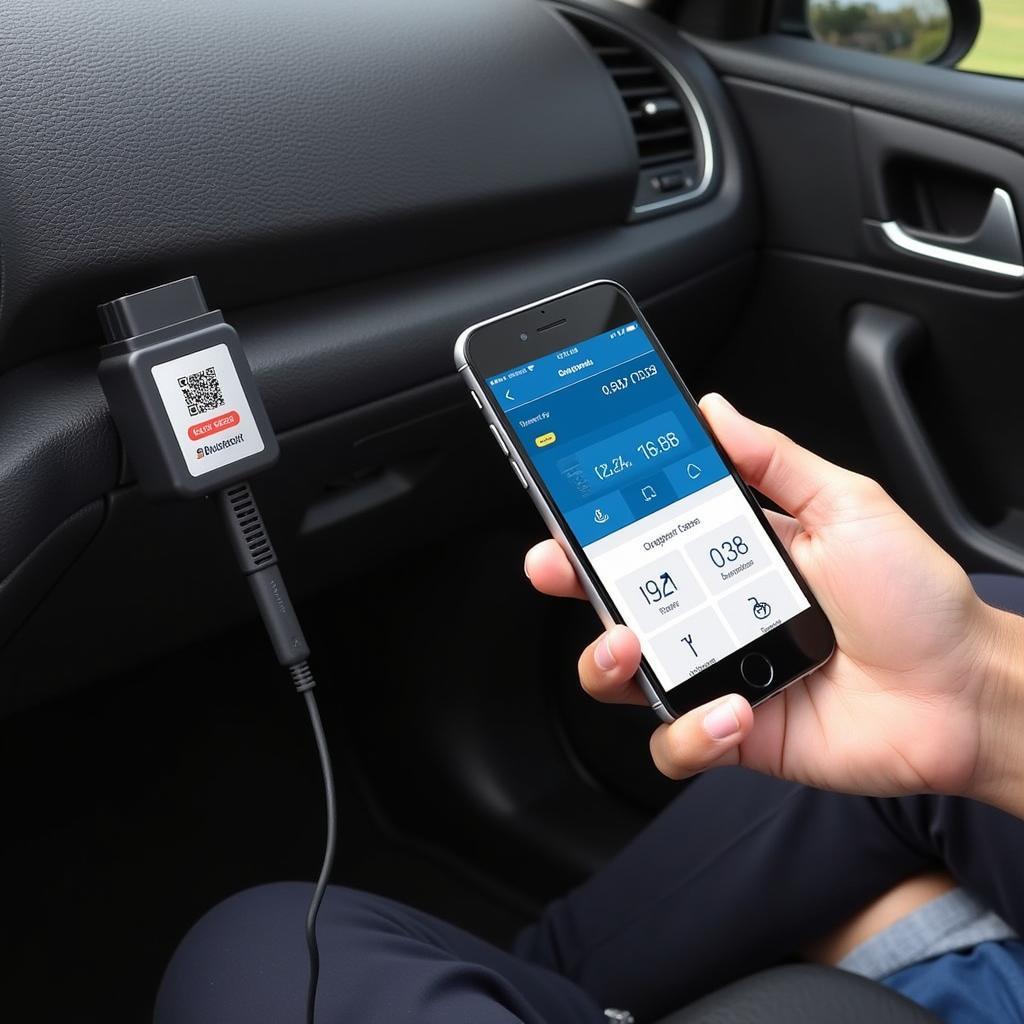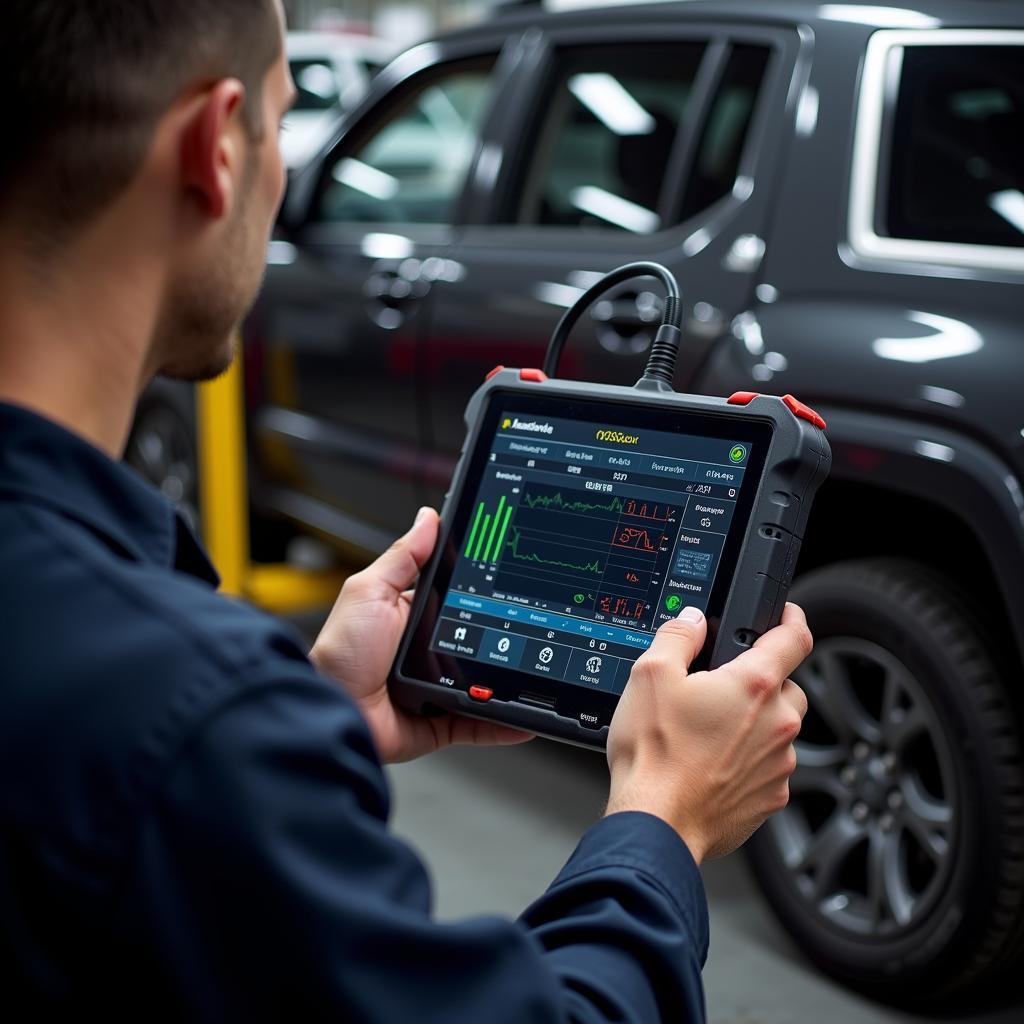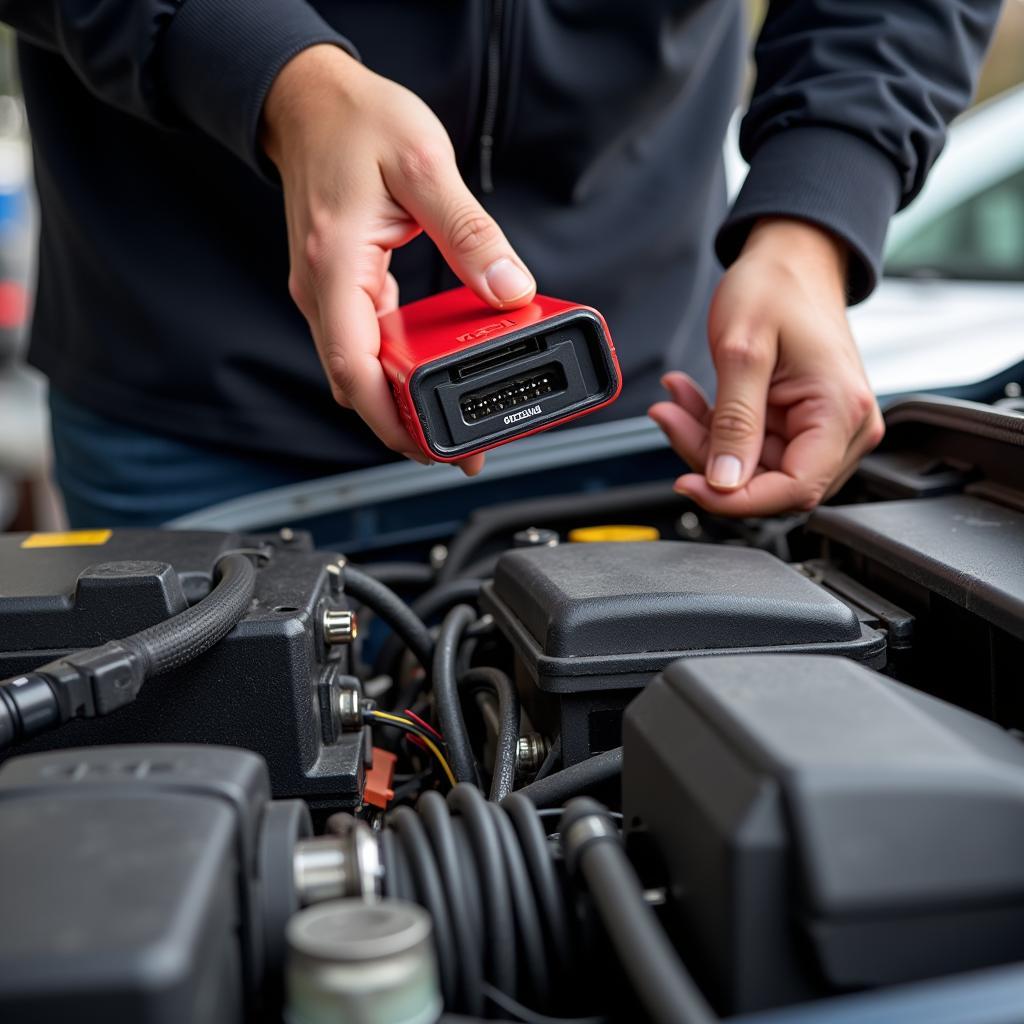Car Health Scanners, also known as OBD-II scanners, have revolutionized the way we diagnose and maintain our vehicles. These handy devices offer a window into your car’s internal systems, providing valuable data that can help prevent costly repairs and ensure optimal performance. Whether you’re a seasoned mechanic or a car owner looking to take a more proactive approach to maintenance, understanding the power of a car health scanner is essential.
Similar to a fixd obd-ii active car health monitor obd2 wireless scanner, car health scanners offer a simple way to monitor your car’s vital signs. They empower you to identify potential problems early on, often before they become major headaches. This article will explore the benefits, types, and practical applications of car health scanners, equipping you with the knowledge to make informed decisions about your vehicle’s well-being.
What is a Car Health Scanner?
A car health scanner is an electronic device that connects to your car’s OBD-II port, typically located under the dashboard on the driver’s side. This port allows the scanner to communicate with the car’s onboard computer, retrieving diagnostic trouble codes (DTCs), real-time data, and other crucial information about the engine, transmission, emissions system, and more.
Why Should I Use a Car Health Scanner?
Using a car health scanner provides a multitude of benefits, including early problem detection, cost savings on repairs, and improved vehicle performance. By identifying potential issues early, you can address them before they escalate into expensive repairs. Additionally, a scanner can help you monitor your car’s overall health, ensuring that it’s running efficiently and safely.
Types of Car Health Scanners
Several types of car health scanners are available on the market, each catering to different needs and budgets. Basic code readers are affordable and can retrieve DTCs, while more advanced scan tools offer features like live data streaming, bi-directional control, and special functions. Choosing the right scanner depends on your technical expertise and the level of detail you require.
How to Use a Car Health Scanner
Using a car health scanner is typically straightforward. First, locate the OBD-II port in your vehicle. Next, plug the scanner into the port and turn on the ignition. The scanner will then communicate with your car’s computer, allowing you to retrieve and interpret the data.
Decoding Diagnostic Trouble Codes (DTCs)
DTCs are codes that indicate a specific malfunction within your car’s systems. Understanding these codes is crucial for diagnosing and resolving issues. You can look up the meaning of DTCs online or use a scanner with built-in code definitions.
This is similar to how the key diagnose car scanner decoding works, providing detailed information about your car’s health. A proper understanding of these codes is vital for accurate diagnosis.
Advanced Features of Car Health Scanners
Many car health scanners offer advanced features beyond basic code reading. These include live data streaming, which allows you to monitor various parameters in real-time, and bi-directional control, which enables you to activate certain components for testing purposes.
 Car owner using a Bluetooth OBD2 scanner with their smartphone.
Car owner using a Bluetooth OBD2 scanner with their smartphone.
Choosing the Right Car Health Scanner
Selecting the right scanner depends on your individual needs. For basic diagnostics, a simple code reader might suffice. However, for more in-depth analysis and advanced features, a professional-grade scan tool would be more appropriate. The foseal super mini obd2 bluetooth scan tool adapter or the icarsoft auto diagnostic scan tool b800 v2.0 are good options to consider.
Maintaining Your Car with a Car Health Scanner
Regularly using a car health scanner can help you stay ahead of potential problems and maintain your car’s overall health. By monitoring key parameters and addressing issues promptly, you can prevent costly repairs and extend the life of your vehicle.
“Regularly using a car health scanner is like getting regular checkups for your car. It’s preventative maintenance at its best,” says John Davis, a seasoned automotive technician with over 20 years of experience.
Car Health Scanners for Professionals
Professional mechanics and technicians rely on advanced car health scanners for comprehensive diagnostics and troubleshooting. These scanners offer specialized functions, extensive code libraries, and data logging capabilities, allowing them to quickly and accurately diagnose even the most complex automotive issues. Much like the utility of a comprehensive car and truck scan tool, a professional-grade scanner is an essential tool for any serious mechanic.
 Professional-grade car health scanner in use at an auto repair shop.
Professional-grade car health scanner in use at an auto repair shop.
Conclusion
Car health scanners have become indispensable tools for both car owners and professionals. They empower you to take control of your vehicle’s maintenance, providing valuable insights that can save you time and money. Whether you’re a DIY enthusiast or a seasoned mechanic, investing in a car health scanner is a wise decision for ensuring the long-term health and performance of your vehicle. For further assistance or to explore a wide selection of car health scanners, please contact ScanToolUS at +1 (641) 206-8880 or visit our office at 1615 S Laramie Ave, Cicero, IL 60804, USA.

